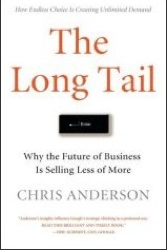Wired editor Anderson declares the death of "common culture"—and insists that it's for the best. Why don't we all watch the same TV shows, like we used to? Because not long ago, "we had fewer alternatives to compete for our screen attention," he writes. Smash hits have existed largely because of scarcity: with a finite number of bookstore shelves and theaters and Wal-Mart CD racks, "it's only sensible to fill them with the titles that will sell best." Today, Web sites and online retailers offer seemingly infinite inventory, and the result is the "shattering of the mainstream into a zillion different cultural shards." These "countless niches" are market opportunities for those who cast a wide net and de-emphasize the search for blockbusters. It's a provocative analysis and almost certainly on target—though Anderson's assurances that these principles are equally applicable outside the media and entertainment industries are not entirely convincing. The book overuses its examples from Google, Rhapsody, iTunes, Amazon, Netflix and eBay, and it doesn't help that most of the charts of "Long Tail" curves look the same. But Anderson manages to explain a murky trend in clear language, giving entrepreneurs and the rest of us plenty to think about. (July)
Copyright © Reed Business Information, a division of Reed Elsevier Inc. All rights reserved.


Lisrten the Podcast from Friends Talking Podcasts:
http://ia300107.us.archive.org/2/items/JoelGreenbergChrisAndersonEditorinChiefofWiredInterview/Chris_Anderson_Interview__96kbs__friendstalking.joelandkaren.com.mp3


No hay comentarios.:
Publicar un comentario